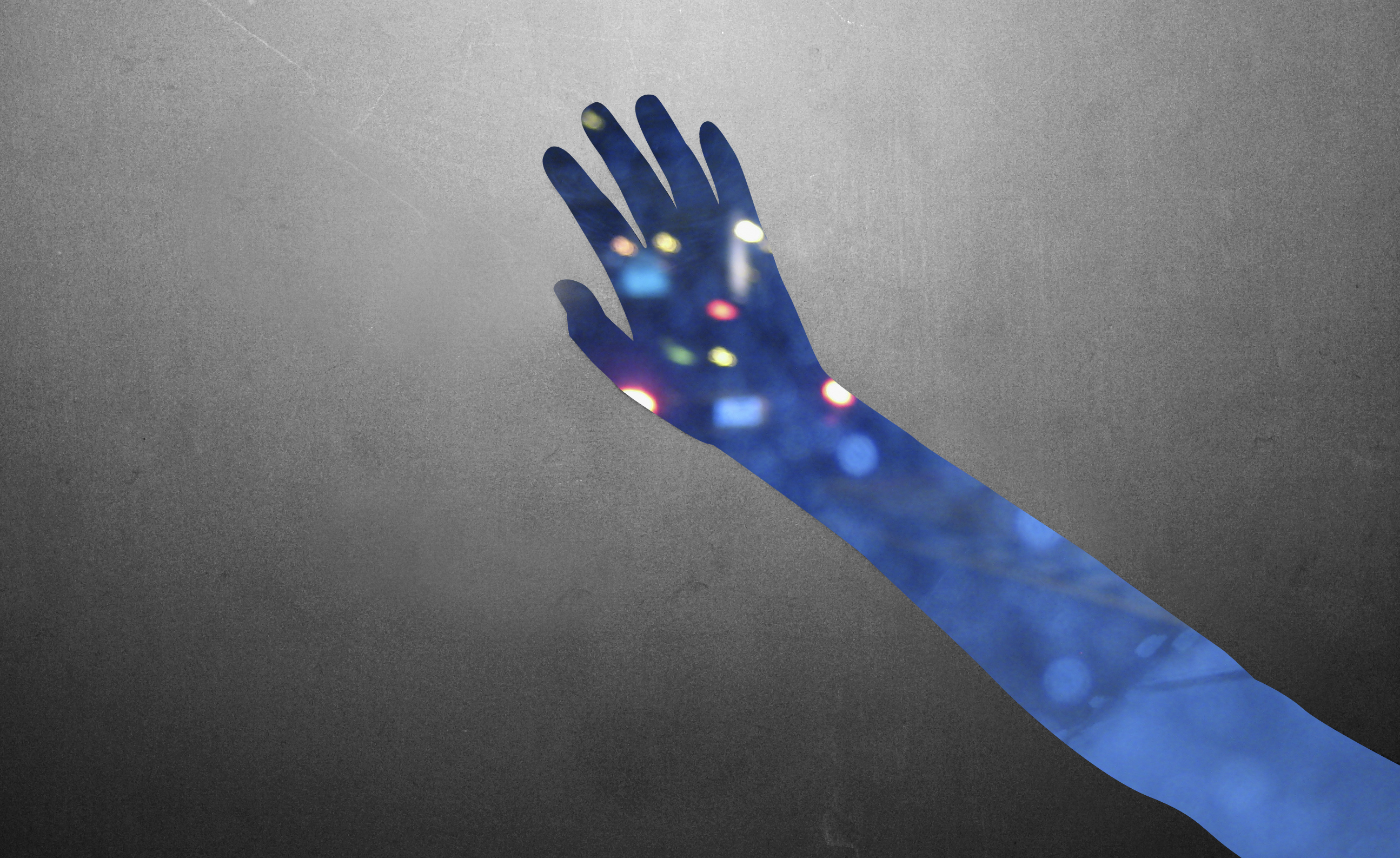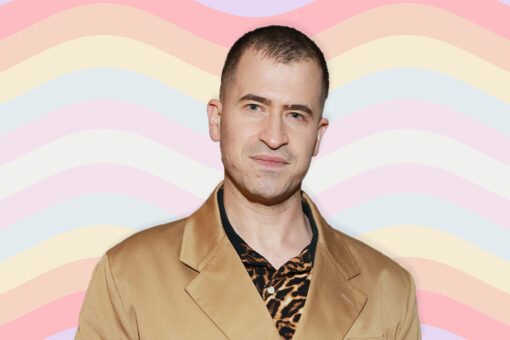In my 23 years, I have never felt more shame than I did when my mother lashed out at me — inspired by her “Christian values” — after she found out that I had lost my virginity.
I hate that phrase, because it implies women are left lacking and damaged after what is supposed to be a consensual act based in mutual respect. But there’s no other way to describe what happened to me. What he did wasn’t consensual, and it left me damaged. Worst of all, it set off my mother’s rage.
Let me back up: I was homeschooled for most of my life, supposedly for religious reasons, though my mother hardly ever took us to church. My dad was 10 years old when his father died, and he stopped believing in God the minute he found out. So, he didn’t try to force any kind of religion onto us, but was willing to let my mother do so.
But my father had a Jewish background through his mother’s family, and I always wanted to learn more. I didn’t have the self-awareness to identify as religiously Jewish myself (I brought it up as a quirky conversation starter), but I always felt this pull towards Judaism. As a kid, I loved to hear about my great-grandfather and how he wore a kippah and the Jewish traditions he had. My mother started to hate my curiosity and my questioning; I remember she threw away the books I had on Judaism because they “undermined my faith in Jesus.”
My freshman year of college, I got shitfaced drunk — blackout drunk actually — and a trusted friend named Christopher* convinced me to sleep in his room. When I woke up, I was wearing his clothes and I had a collection of bruises on my neck — greenish-black, blue, red, all swirled together, with several scratches spanning the width of my throat. I was shocked; this seemed to be more than a simple make-out session.
He told me they were hickies and that I had begged for them. That may have been true — I was out of my mind drunk and had done a lot of reckless things that night. Touching my neck, I felt a piece of dried blood and decided to act like this was fine — no, like it was great. He gave me a grey hoodie to cover my neck; he said I couldn’t leave looking like that.
I held on to the good pieces of the night that I could remember — the laughing, the cuddling, me telling him that I was a virgin and that I didn’t want to go too fast. I turned it into a schlocky teen movie in my head. But the marks on my neck and the scratches on my thighs provided an alternate script.
Being homeschooled, I was never taught about sexual assault or coercion or date rape or consent. I didn’t have the words to describe what had happened to me, and all that confusion ate at me from the inside out. I tried to cope through whatever means necessary, which was mostly self-medication and denial.
While I got perfect grades that semester, the only class I managed to dedicate myself to was an Apocalypse course, taught by a Jewish professor who would talk to me for hours. She would validate my Jewishness and give me books about Caribbean Jewish history, Israel, and Torah. Talking to her felt like home, or what home should have been: a space without judgement. She started to give me hope that I could somehow heal.
But that hope didn’t last; shit got real bad before it got better. My mother soon found out about the drinking and the sex. I didn’t get a stern lecture or a loving, concerned discussion.
I got humiliation.
She pulled out all the condoms that my friends and I used for water balloons and laid them on the dining room table, forcing my younger siblings to look at them while she told them a) what condoms were and b) what a whore their big sister was. In a moment of delirium, I remember laughing at what a strange way this was for the kids to receive their first sex-ed class.
She forced me to tell her details of the sexual things Christopher and I had done. When I answered, she got furious with me, telling me that she would never forgive me. She did a lot more than that, but the tragedy here isn’t the specific violation; it’s that her actions irrevocably severed the tie that bound us – our whole family – together. After that, she didn’t feel like my mother anymore.
When I suggested I go to my grandmother’s house, she forbade me. Instead she took me to psychiatrist who told me Jesus Christ was my only hope for true healing. He told me that I had made bad decisions with my body, prescribing me heavy doses of medications that I didn’t need — Lithium, Lexapro, a muscle relaxer, an anti-anxiety medication. I became aggressive and lethargic. I slept for 14-17 hours a day and gained 70 pounds that I never fully lost.
When the medications caused hallucinations — at one point, I saw Christopher in my bathroom mirror — he upped the dosage and told me to accept Jesus into my life. I couldn’t move, I couldn’t walk, I couldn’t study… I felt inhuman.
I was thoroughly disgusted with Christianity at this point, but hey, my mother was also disgusted with me. My promiscuity became the focal point of our household.
I hated her so much, but I also needed her love. So, I clung to the Christian values she told me she prioritized. I changed the way I dressed, I changed what I watched on television, I stopped cursing… I tried to re-virginize myself. I tried to make myself believe what she believed.
When I was raped my sophomore year, she told our whole family I was lying (despite him admitting to it). When I heard that, something in me broke hard and fast.
It was a good breaking.
I stopped taking the medicine. I started relying on my grandmother to be my mother figure. And I started going to Hillel. At first, I was nervous because I didn’t feel like I belonged – like my Christian upbringing had tainted me. But I was welcomed by the Hillel rabbi, who taught me so much about Judaism and made me feel at home on Shabbat. I completed a Jewish learning fellowship, I learned about Kabbalah, and I made invaluable friendships.
Then I told my mother she was toxic and it felt good. I was done allowing her to shame me. The Torah commands us to honor our parents, but to this day, I believe telling my mother to go fuck herself was the best decision I ever made.
The truth is, there were so many factors that led to me being able begin a journey of healing. My relationships with my friends, my writing, falling in love, connecting with my grandmother — all of these things helped me to deal with the trauma.
But above all other things, Judaism helped me heal from the shame. It was a reclamation of my neshama, my soul.
My mother was the only church I had ever known, the only God I had been beholden to. Studying Judaism in a real way — not just singing the Hanukkah song with my dad and eating latkes — helped me to distance myself from the hurt that had been done to me. It released me from my mother’s control. It transformed me into a woman I am proud of today — one that is freeing herself from shame, one breath at a time.
*Names have been changed.
Header image via arandana17 on Flickr.
Nylah Burton lives in Denver, Colorado and works as a writer and sexual assault prevention advocate. You can follow her on Twitter @yumcoconutmilk.



